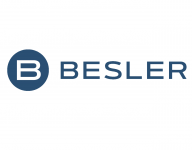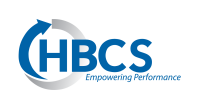* * * * * This post sponsored by PwC. * * * * *

The US health industry is showing signs of modernizing along the lines of tech, retail and hospitality, changes that should benefit consumers and the healthcare system overall. Once thought to operate outside the greater US economy, the industry—with its byzantine payment system, complicated regulatory barriers and reliance on face-to-face interactions—is being disrupted. Finally, there’s robust evidence that what we call the New Health Economy is kicking into gear. Take a look at what’s to come in 2019:
- Digital therapeutics and connected care reshape the life sciences industry. In 2019, new entrants and biopharmaceutical and medical device companies will bring to market new digital therapies and connected health services that can help patients make behavioral changes, give providers real-time therapeutic insights, and give insurers and employers new tools to more effectively manage beneficiaries’ health.
- The Affordable Care Act in 2019: Still Alive. Two years into the Trump administration, the Affordable Care Act (ACA) remains law yet Republican lawmakers and the administration have reshaped parts of it through legislative, regulatory, budgetary and legal actions. In 2019, these actions will create new winners and losers.
- Your company’s new, upskilled health worker of the future is you. In 2019, healthcare companies will identify which employees have to be upskilled or reskilled to get the most out of new and impending technologies such as artificial intelligence (AI) and robotic process automation (RPA). These technologies will be critical in helping companies continue their shift into providing care anywhere through telehealth, as well as reduce transactional tasks for the 63% of US health workers that say the work they do requires a great deal of manual entry or analysis.
- Tax reform has only just begun for healthcare companies. The healthcare industry will begin to feel substantial effects of the 2017 Tax Cuts and Jobs Act in 2019. The law will create both new possibilities for companies looking to turn their tax savings into competitive advantages, and novel challenges for organizations facing new taxes. At the same time, emerging trade pressures may create uncertainties for companies hoping to maintain the status quo.
- Creating the Southwest Airlines of healthcare. In 2019, a health industry increasingly pressured to do more with less will take lessons from emerging companies that have figured out how to deliver value to uninsured and underinsured–traditionally deemed unprofitable–while turning a profit.
- Private equity: Healthcare’s new growth accelerator. For years private equity firms have invested in healthcare, but now the pace is quickening as they step up their presence in a highly fragmented health industry. Private equity’s acquisitions and investments in the health sector have become increasingly diversified and frequent. HRI expects this trend to accelerate in 2019, giving traditional healthcare companies opportunities to sell all or portions of noncore assets and double down on their core competencies.
For more on the trends that will shape the US healthcare industry in 2019, please see PwC’s HRI report, Top health industry issues of 2019, and join our webcast on January 16 at 1pm ET.
© 2018 PwC. All rights reserved. PwC refers to the US member firm or one of its subsidiaries or affiliates, and may sometimes refer to the PwC network. Each member firm is a separate legal entity. Please see www.pwc.com/structure for further details. This content is for general information purposes only, and should not be used as a substitute for consultation with professional advisors.
Thank you to PwC for being a Platinum sponsor of MA-RI HFMA!
MA-RI HFMA is grateful for our generous sponsors. Sponsors at the Platinum and Gold level receive sponsored posts as one of the benefits. For more information on sponsorship, please visit our website.















